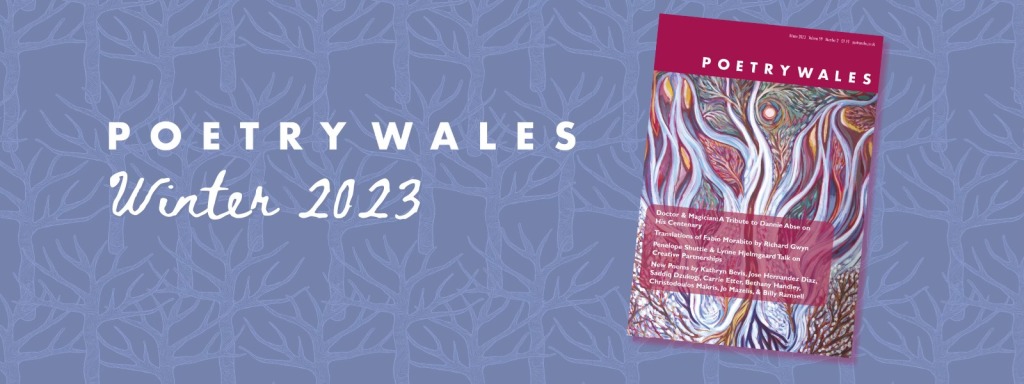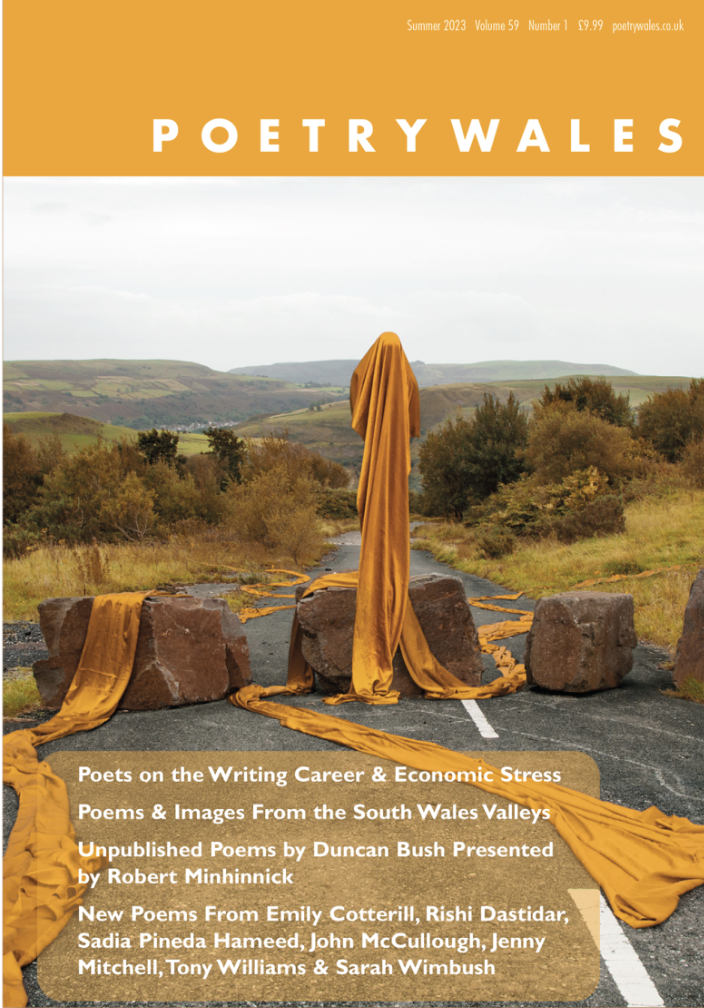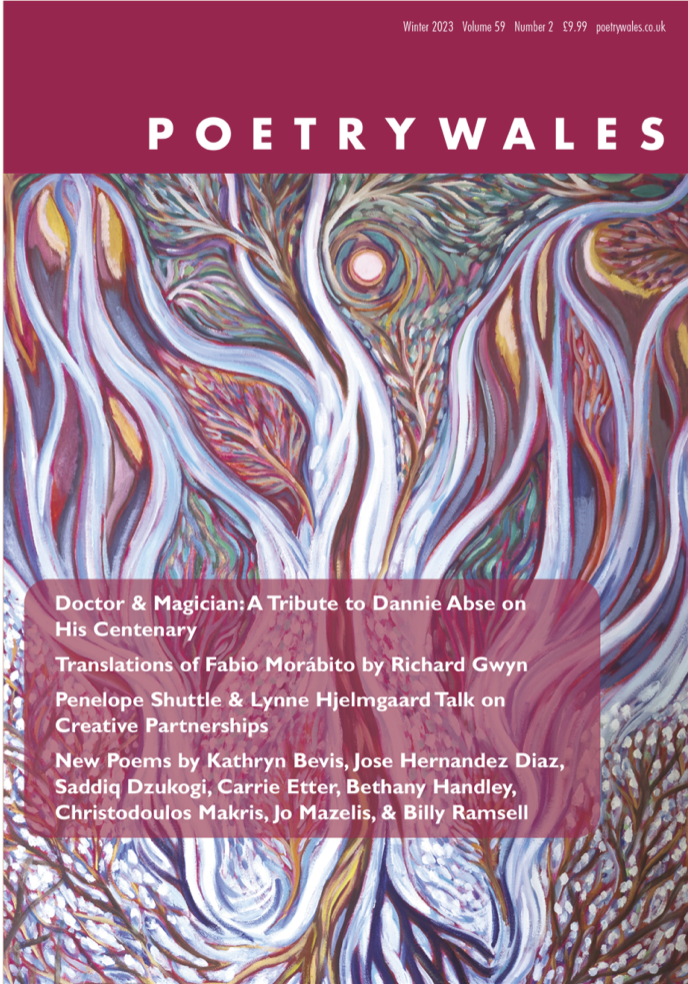Tonight we had the Poetry Wales winter holiday reading, and I am reflecting on a set of wonderful poems read beautifully by contributors. The event was to celebrate issue 59.2 – the mustard yellow issue! – and there were a few strands that seemed important in the poems included, as well as just some great work, as we do not necessarily have the whole issue themed – we are just looking for excellent poems. However, on this occasion, we were open to receiving poems from writers from areas such as the south Wales valleys or places that suffer economic stress around the country and the world.
Interestingly, culture and art cropped up a lot in these poems, though that did not surprise me too much, because the enjoyment of art was something relished in the working class communities where I grew up. In my editorial, I mentioned my Welsh grandparents who were great consumers of culture, and that could be a Star Wars movie, an opera, or a game of rugby.
We had a fine selection of readers. Although we usually read in the order that wok appears in the magazine, Maithreyi Karnoor requested the opening spot to kick off proceedings due to the time difference with India, and the poems showed great observational care focussing on Karnoor’s time spent in Aberystwyth. Next came a video from Rishi Dastidar who, in eloquent and debonair fashion, lambasted the “leisure classes”, before Jayant Kashyap -also zooming in from India – read a poem which highlighted the untold stories of the “village”. Scottish writer and editor, Rob A. Mackenzie, was a welcome contributor, reading amusing and startling odes to Lidl and a radiator, Emily Cotterill reflected on working class culture and its “hometowns”.
A set of poems engaging with culture and art – the joy of participating in it – began with Matthew M.C. Smith‘s poem devoted to an X-wing and Star Wars joy, while Hilary Watson presented a poem written for her sister, a cellist who resembles the famous musician, Jacqueline Du Pre. The musical theme continued with Katherine Stansfield‘s brilliant poem about watching Singing in the Rain at Cardiff’s Millennium Centre – the pleasure and delight of it – while Susie Wild offered a poem about the artist Nina Hamnett, a wild and wonderful woman, whose artwork Fancy Dress can be found in Tenby Museum.
A new set of poems offered commentary on class and masculinity, with Matt Duggan asking: “Why must men never be fragile?” with that suggestive space in the line. Leigh Anthony Manley depicted the overwhelm on modern life in the dread of another ‘Outlook Reminder’, while Steve Logan presented a complex portrait of a schoolfriend who could be both cruel and tender. Jane Houston created a carefully observed portrait of school life for young women, while Rufus Mufasa led us through the mayhem and carnivalesque of a wedding in Newport.
Our final set of poems touched on economic stress, but were also more general. Harriet Jae movingly documented the difficulty of poverty, while Cheryl Moskowitz conjured the cries of the incarcerated in a women’s prison. Chilean poet, Fran Fernández Arce, set her poem the task of describing an aiport to a mother and father who will likely never visit one, reminding us of the privilege it takes to cross borders. Angela Graham‘s gave a tremendous reading of her poem, situated in Northern Ireland and questioning what happens to language in the wake of violence. Andrea Witzke Slot moved us with a poem about reading Sylvia Plath and coming to terms with the mortality of an ageing mother.
Last but not least, Nicholas McGaughey was the back cover poet for this issue, and his poem raised many interesting questions for me. Told from the perspective of an actor on the set of a film being made about the Aberfan disaster, the poem raises uncomfortable questions about retelling the tragedy of working class communities. At Aberfan of course, in 1966, a spoil tip from the local mine collapsed and buried the local school, killing almost everyone in it, including most of the children in the village. When I am in the U.S., if I say that I am from Wales, often the first thing that people ask me is whether that is the place from The Crown? They are talking of course about the recreation of the Aberfan disaster for that series, and McGaughey’s poem raises contradictory feelings that we may have on this being the way that Wales is represented and known throughout the world via Netflix. It was an interesting note to end on.
We have another holiday reading coming up, this time on Tuesday December 12th, and with a great host of readers including Jean Atkin, Thea Ayres, Kathryn Bevis, Jane Burn, Chaucer Cameron, Sophia Rubina Charalambous, Claire Crowther, Tony Curtis, Cath Drake, Alix Edwards, Camille Francois, Stephanie Green, Philip Gross, Bethany Handley, Jose Hernandez-Diaz, Richard Marggraf-Turley, Jo Mazelis, Ankit Raj Ojha, Nurain Oládèjì, Ben Rhys Palmer, Stephanie Powell, Joshua Seigal, Penelope Shuttle, Robert Walton, Julia Webb, Allison Whittenberg, tonny Williams, and Heather Mackay Young. This will be to celebrate issue 59.2 which has a suitably wintry cover!
All the tickets for the events free, but we ask that you consider giving what you can to UNICEF, an org that protects the human rights of children in a time when children’s rights are being eroded. I greatly admire the work that they are currently doing for children, for example at the moment supplying medical aid and support for children and their families in Gaza as well as in Sudan.





1 Comment